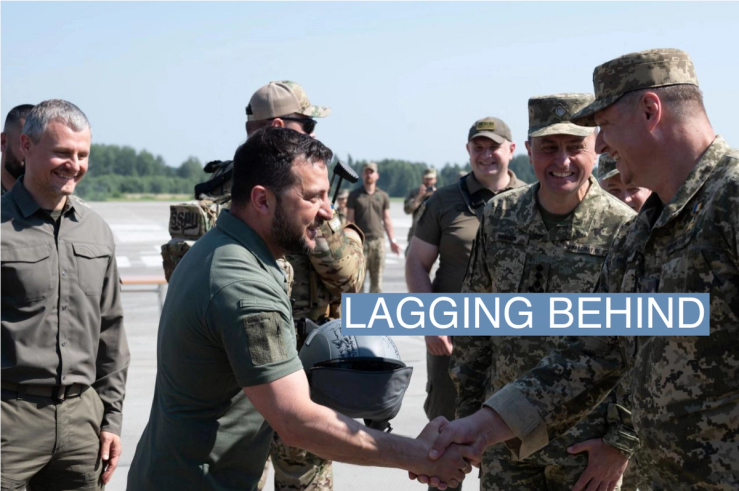The News
Analysts are concerned that Western governments’ lack of urgency in offering tangible support for Ukraine may be hampering the country’s counteroffensive.
We’ve collected key analysis you should read about how Western indecision — and waning support from some countries — might be impacting Ukraine’s ability to defend itself against Russia.
Insights
- Ukraine’s allies have one “glaring deficiency”: Their inability to move quickly on decision-making, according to Jack Watling, a senior research fellow of land warfare with the Royal United Services Institute (RUSI), a U.K.-based security think-tank. Watling wrote that governments waited too long to commit to support for Ukraine’s counteroffensive, and fulfillment of that support was still unfinished. “Had the decision to equip and train Ukrainian forces been taken and implemented when the requirements were identified in the autumn, Ukraine would have had a much easier task in reclaiming its territory,” he noted.
- The delayed response to Ukraine’s needs meant real-time battlefield losses, allowing Russian forces to fortify territories they occupied in Ukraine. Moscow’s troops were able to move without fear of Ukrainian-operated Western tanks or munitions. That same lag is ongoing now — and it risks lengthening the war: “If the past year of the conflict has shown anything, it’s that this kind of vacillation is costly. It not only squanders additional Ukrainian lives, but it also makes a protracted, grinding conflict more likely,” wrote Brady Africk. — The Washington Post
- Public support for the war in the U.S. is waning. A recent poll found that a slim majority of Americans oppose delivering additional aid to Ukraine, with 51% of respondents saying that the U.S. has already done enough for the country. That’s a significant change from earlier this year, when 68% of Americans believed the U.S. could be doing more to help. Those who support continued aid largely believe that it should be delivered in funding, rather than munitions or arms. — CNN
AD


